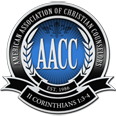
During the time I began learning to practice the presence of God, I had a client (a pretty wonderful client) whose mom was also a therapist. She was very engaged in therapy, and really loved Jesus with her whole heart. As a result, she worked hard and made great progress and was able to “graduate” from counseling. One day in our session, she was sharing how she had been talking to her mom who had recommended a book to her. It was called “The Practice of the Presence of God” by Brother Lawrence. I was beyond intrigued with the title because it described what I had been experiencing with God and pointed to someone who had lived that way too. I had not made this up! God had shown me how to do this Himself and was now confirming this practice with an ancient French Monk. I began to read up on this really interesting man with great excitement, and immediately ordered multiple copies of the book for my clients, starting with the precious one who had recommended it.
The homepage of practicethepresenceofgod.com describes Brother Lawrence as,
“…a humble cook who experienced life in the kingdom of God to its fullest by learning to commune with God everyday—and every hour of the day—even during his ordinary work. In short, he learned the art of living in the presence of God throughout the day. He himself once said, “I am doing now what I will do for all eternity. I am blessing God, praising Him, adoring him, and loving Him with all my heart.”
His abbot wrote about him: “Brother Lawrence often spoke to me with great fervor and frankness of his way of approaching God. He told me that it all amounted to one good act of renunciation of everything that does not lead to God, so that we can develop the habit of unbroken conversation with God without any artificiality. In this unbroken communion with God, a person is continually absorbed in praising, worshipping and loving God for his infinite acts of loving-kindness and perfection.” Brother Lawrence, who was originally named Nicholas Herman, was born in Lorraine, France in the early 1600s. As a youth, he lived through the brutal Thirty Years War fought between the Catholic and Protestant countries of Europe.
At the age of eighteen, Nicholas had a strong conversion, which led him to seek a deep relationship with God. He worked for a while as the footman or valet to the king’s treasurer. However, according to his own words, he was a “great awkward fellow who broke everything.” Thinking he was not good at anything, Nicholas entered a monastic brotherhood in Paris, France—somewhat as a form of self-punishment. Here, Nicholas eventually became a lay brother, and he took the name of Brother Lawrence.
Brother Lawrence never advanced beyond being the cook at the monastic community, but he developed the unique gift of being able to pray incessantly with God throughout the entire day—even during his work. He referred to this continual communion with God as the “practice of the presence of God.” This practice produced such a spiritual change in Brother Lawrence that various persons would come to visit him and try to learn how to practice the presence of God themselves. One such person was an abbot, Joseph de Beaufort, who collected together the letters and interviews with Brother Lawrence that comprise The Practice of the Presence of God. Beaufort published this work in 1692 under the title of Spiritual Maxims.”
I was completely obsessed with this little book once I purchased it, and even downloaded the audio from Youtube and played it every time I got in my car and would often fall asleep listening to it. I wanted to ensure that I continued this practice because I had already seen amazing results and knew it would revolutionize my life. I was very inspired by this man who would use every waking moment to speak to His creator and as a result experience such deep joy and contentment. I copied the link to the audiobook and shared it with every client who even remotely showed interest, and encouraged them to immerse themselves in this practice as well, one step at a time.






